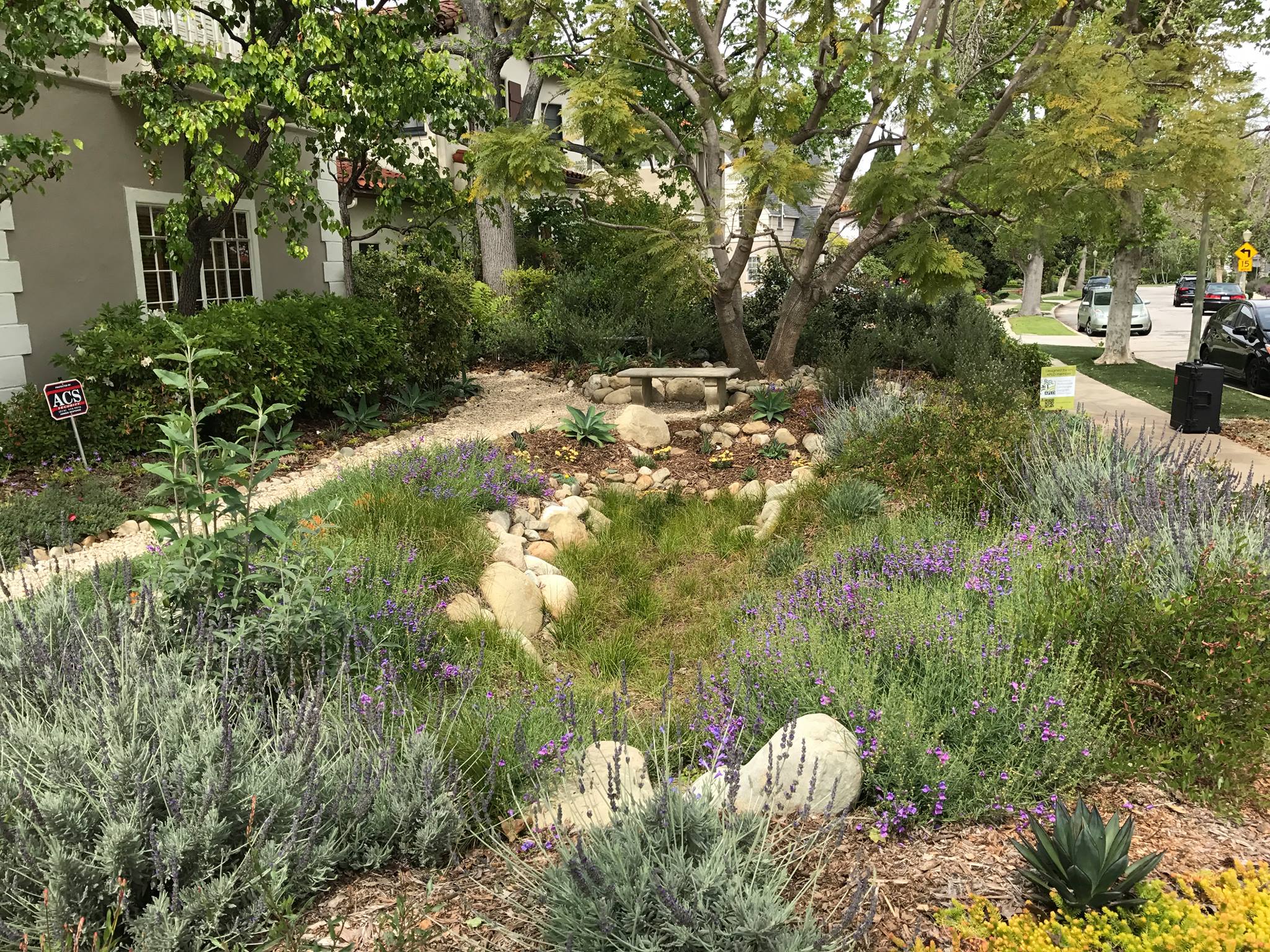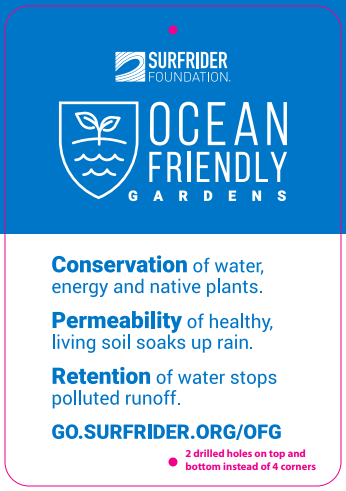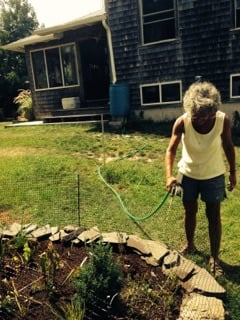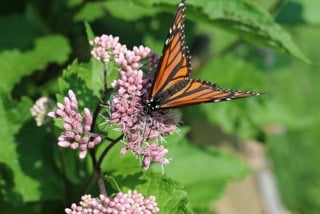
Ocean Friendly Gardens
Contact Bill, OFG Coordinator at ofg@southjersey.surfrider.org

Want to have a positive impact on the ocean? Start in your yard! By employing the techniques of Surfrider’s Ocean Friendly Gardens Program you can reduce the amount of wasteful water runoff, pollution and harmful pesticides entering our waterways.
A Simple Approach
Ocean Friendly Garden (OFG) standards use this simple approach everywhere possible: contouring landscapes for rainwater retention; creating living soil to sponge up water, filter pollution and sequester carbon; and installing climate-appropriate plants to create wildlife habitat and a sense of place.
The OFG Program is Surfrider Foundation's volunteer-run landscape education, hands-on training and advocacy program. In addition to providing valuable information to property owners on how landscapes and hardscapes can prevent water pollution, Surfrider chapters are using this program to encourage landscape professionals to incorporate the program’s principles into their business practices. Chapters also use the program to motivate local governments to support OFG-oriented policy changes for existing and new development.
What Is An Ocean Friendly Garden?
OFGs apply CPR – Conservation, Permeability and Retention – to landscapes, hardscapes and streets. They allow soil to act like a sponge to help restore the helpful functions of watersheds like protecting local water supplies and preventing pollution from reaching the ocean. They also reduce flooding during storm events, pull carbon from the air and into plants and soil, and create wildlife habitat (to the left is a typical OFG and below is a curb cut flowing into a bio-swale).
OFGs apply what is coming to be known around the country as the watershed approach. The principles are the same: healthy, living soil; retain rainwater; climate-appropriate plants; efficient supplemental irrigation as needed.
Water runoff is the #1 source of ocean pollution in urban areas, contributing to flooding and wasting water that can irrigate landscapes and replenish groundwater.
Why install a Rain Barrel in your OFG?
Each rain barrel helps to get the water into the ground, to be naturally filtered and slowed, and not run directly into the river. Native plants are installed to absorb the water that is captured.
Want to learn more or get involved in planting projects?
Email Bill Stuempfig, our Ocean Friendly Garden Coordinator at ofg@southjersey.surfrider.org.
Bill has created an Ocean Friendly Garden (OFG) at his own home along the Tuckahoe River. We have 2 OFGs at local schools and many rain barrels installed with residents throughout South Jersey!
Below are pictures of their OFG with native plants.


A garden being watered with stormwater (roof runoff) that was harvested in a rain barrel which can be seen in the background.
A rain garden is in a low-lying area (depression in the ground) that collects, absorbs and filters water overflow from the rain barrel or drain. Native plants are species that grow in the bogs of the Pine Barrens of NJ. Some are carnivorous pitcher plants.


Native plants provide habitat and food for insects and birds and attract many species of butterflies.
A perennial garden containing all native plants including bayberry, tickseed, cardinal flower, milkweed, coreopsis, joe pye weed, blueberry, ageratum, aster, salvia, partridge pea, daisy, and hyssop.

